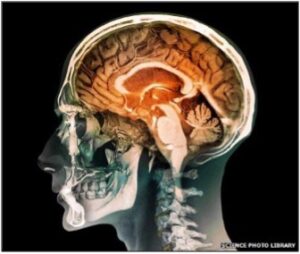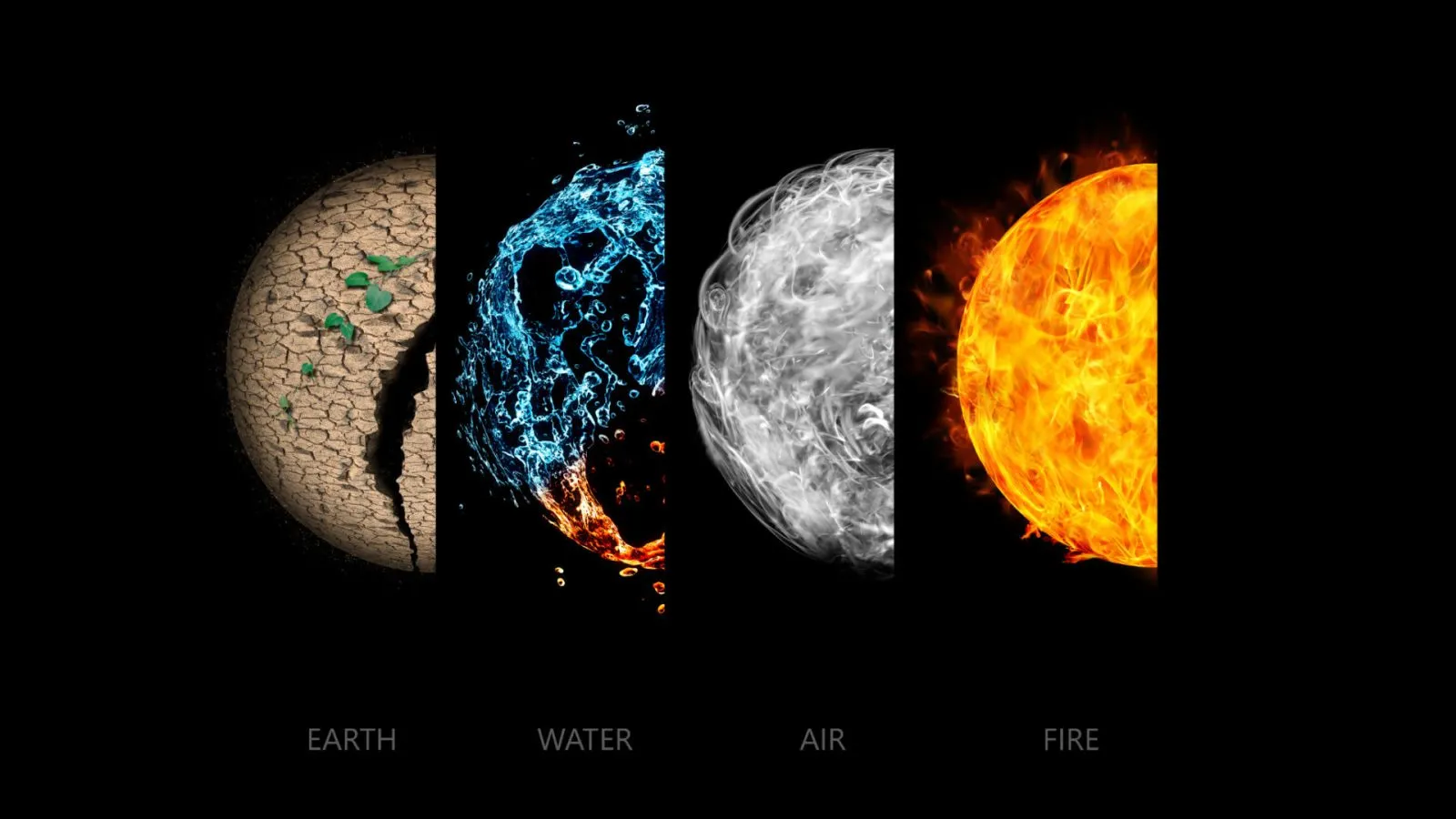Men aren’t from Mars, They’re Misunderstood!

The male brain. I come into contact with several of them each day. They fascinate me. Challenge me. Sometimes, they bother me. The male brain is a wonder that continues to pique my curiosity. I love watching a male brain process information. I love the distinctive styles of intelligence and ingenuity male brains have. Even the writer of Proverbs understood the uniqueness of the male brain when he wrote, “There are three things that are too amazing for me, four that I do not understand: the way of an eagle in the sky, the way of a snake on a rock, the way of a ship on the high seas, and the way of a man with a young woman.” Proverbs 30:18-19 NIV. Alas, the awkward teenage male brain has been around since the dawn of time. I laugh.
But why is the male brain so fascinating to me? Well, I have a couple of reasons. First of all, I grew up in a family with all boy cousins. I was swimming in a sea of testosterone and pure power at every holiday gathering I attended since the moment I was born. My cousins and I didn’t play Barbies, instead we wrestled over Lego sets and built giant forts. We had Nerf gun wars in the basement and played car racing Xbox games. I was the cool, honorary girl cousin that got to hangout with the boys. But it was an unspoken rule. It was the first rule of the fight club. We never talked about it, but after all the teasing over the years, I could confidently say they liked having me around.
Secondly, the male brain fascinates me because I have been fortunate enough to be close with my dad since I was little. Every time we talked, I always loved hearing how his brain processed information. Now to be fair, he was a “girl dad” so he had grown familiar with relaying information in a way that made sense to my scatterbrained mind. But the way he processed information always fascinated me. He was calm, collected, and always looked at the facts of a situation. The way he thought about life made me feel safe, especially when I was drowning in my own estrogen. Granted, not every male brain thinks the way my father does, but I began to understand the male brain better each year after hearing my dad process his thoughts out loud. The male brain has taught me how to see life from a “one thought at a time” point of view. I appreciate it endlessly.
The male brain is a part of my everyday world and yet it has never been my own reality. I cannot think from a male’s perspective because I am not male. I am, and will always be, a female. So, I am immersed in this alternate reality. I’m surrounded each day by entirely different sets of neurons that compute, process, and relay information in a different manner than I do. And I want to know what it’s like inside the mind of a male. During my immersion into the male brain, I want to look at the brass tacks of how the average male brain operates and functions on a physical level concerning structure and hormones. I also want to explore the emotional processing of the male brain, how it falls in love, and navigates fatherhood. I want to know about all the things I’ll never get to experience through the eyes of a male.
The cultural extinction of the male brain
As I immerse myself into the male brain, I want to start from a place I know: culture. In the last 50 years, an interesting phenomenon has arisen in the midst of the feminist movement, the #MeToo movement, toxic masculinity, gender equity and cancel culture. While all of these movements have an incredible push for positive change, they’ve at times broadcasted the message “Smash the patriarchy! No uterus, no opinion. You’ve (cis-gender white males) had center stage for too long, it’s our turn now!” Because of this, the male brain is slowly being suffocated into submission. The male brain is nearly on the verge of extinction. The saber toothed she-tiger paces the watering hole of opinions and culture, waiting for the male brain to say something sexist. The male brain stands silently, awaiting the guillotine of cancel culture the minute he opens his mouth.
Though I genuinely despise all the wrong done to women and minorities by old white men over the centuries, I think our culture is missing the point by canceling the male brain altogether. While I’m thankful that these movements have brought attention to important issues that deserve reprimand, I’m equally devastated that masculinity and manhood seem to be shrinking into a black hole altogether. While wrestling out issues on women’s rights and gender roles, terms like “masculinity” and the “male brain” have been continually cross-contaminated with a slew of negative terms. Even now, the term “masculinity” and all the connotations that come with it are labeled toxic.
In a recent article titled Toxic masculinity is a harmful myth. Society is in denial about the problems of boys and men by Richard Reeves, an author for The Big Think, he recounts a story of several young boys who got in trouble at a prestigious school. (Reeves, 2022). A few male students decided to rank the attractiveness of their female classmates on a piece of paper, which later got leaked. The female classmates protested their counterpart’s detention, on the grounds of misogyny and objectification.
Reeves writes, “It is one thing to point out that there are aspects of masculinity that in an immature or extreme expression can be deeply harmful, quite another to suggest that a naturally occurring trait in boys and men is intrinsically bad. Indiscriminately slapping the label of “toxic masculinity” onto this kind of behavior is a mistake.” (Reeves, 2022). While ranking classmates by their “hotness” was probably the wrong move, it shouldn’t condemn the male students to silence. This list in itself is not sexual harassment, violent behavior, or hate speech. This list is just teenage boys pushing the envelope as they have for thousands of years.
When culture condemns all men to inferiority and submission the minute they speak out their opinions, it’s also completely ignoring the beauty of how the male brain sees the world. In an article by Voice Male magazine entitled How do Boys Fit Into Cancel Culture, Feminism, and #MeToo? The author Jonothan Reed recounts an interview he had with an unnamed young man. (Crystal, 2022). Reed recounts the boy’s words, “‘That’s what ’s frustrating,’ a teenage boy said in a recent workshop. ‘If my job is to listen to girls and women because I’m supposed to be respectful, #MeToo and all that… where does my voice fit? How come I’m not ever allowed to speak?’”(Crystal, 2022).
In today’s world, the male brain is becoming less expressive for fear of retaliation. The male brain is threatened with cancel culture the moment it tries to voice its opinion. For example, I could voice that I wanted to stay at home and have children and I would be called a strong, independent woman. Yet if a man my age voiced his opinions on women staying at home, he would be called sexist or a woman hater. Heaven forbid that same man voiced he wanted to be a stay-at-home dad either. In light of this looming issue of the male brain’s extinction, I want to dig deeper into the mind of a male to uncover why we cannot afford to lose it.
Does the matter really matter?
A brain is a brain, right? That’s what I thought up until several weeks ago. If I walked into a biology lab and saw a brain inside a jar, I wouldn’t think twice about if that brain belonged to a male or female. It’s a pink, 6 pound ball of neurons and gray matter. But as it turns out, brains do in fact have a gender. In order to better understand the male brain, I wanted to first take a closer look at what is structurally inside it. I began venturing down the trails of research.
In the Youth Ted Talk Female brain v. Male brain by Arina (last name unlisted), she compares and contrasts male and female brains. Starting out with size and shape, men’s brains are larger than women’s brains. However, this doesn’t necessarily mean men are more intelligent. Moving into the inner workings of the brain, Arina examines how the two brains are structurally different. While women have a larger cortex and larger area of gray matter, Men have bigger amygdalas. The cortex in women’s brains helps them to learn, think, and problem-solve. Conversely, the amygdala in male brains has a larger role in regulating emotions. In 2017, The Stanford Medicine Magazine released an article entitled “Two Minds: The Cognitive Differences Between Men and Women” by Bruce Goldman. Within the article, Goldman explained more about the differences between the female hippocampus and the male amygdala. He wrote, “Adjusted for total brain size (men’s are bigger), a woman’s hippocampus, critical to learning and memorization is larger than a man’s and works differently. Conversely, a man’s amygdala, associated with the experiencing of emotions and the recollection of such experiences, is bigger than a woman’s.” (Goldman, 2017).
In 2013, the University of Pennsylvania performed an MRI study that found male and female brains also function differently in how they process information. (Khazan, 2013). The study found that male brains tend to think within hemispheres, while female brains can zig-zag back and forth between the two halves of the brain. In a real-life scenario, this is best explained in the process of problem-solving. When the male brain sees a problem, it solves it in a direct way due to connections between perception and action. For a female brain, a problem might be solved through logic and intuition. This action creates the zig-zagging between the two sides of the brain in orange below. Women also have an easier time multitasking, which is another explanation as to the purpose of why female brains cross hemispheres easily. The male brain has striking differences from the female brain, which can attribute to how men think in different patterns than women. The male brain’s enlarged amygdala also shows how men prioritize and regulate emotions differently than women do.
Without the male brain, the average man would not be able to compartmentalize thoughts or recall emotional events that happened in the past. The male brain’s unique build accounts for how men process information, and even their own thoughts. If the distinctive aspects of the male brain were to drop off the earth tomorrow, our world would only process life in one way. The physical structure of the male brain is one of, if not the most, important aspects of how the male brain works.
Men can be hormonal too?
Growing up, I always lived in the dark when it came to understanding male hormones. In all honesty, up until several years ago, I never knew males had their own set of hormones besides testosterone. “Hormones” seemed like a catch all term for emotional, pregnant, or menopausal women. That was until I learned about male hormones, and how they affect the body and brain of a man. Several key hormones including testosterone, vasopressin, oxytocin, and prolactin are a few of the chemicals that go into the male brain’s makeup. Testosterone, the most obviously “male” hormone of the bunch, is responsible for male dominance. Testosterone is responsible for aggression, drive, and determination (whether that be in pursuing a woman or winning a prize). Vasopressin, on the other hand, is the hormone that makes the male brain want to keep all that it’s won from testosterone. Vasopressin acts as the galant, protective knight. (Brizendine, 2010).
Oxytocin, though generally seen as a more “female” hormone, is responsible for taming testosterone. Oxytocin plays a major role in reducing male stress hormones, and building trust, empathy, and romantic love. But in terms of family, prolactin might be the most important hormone a man can produce. Prolactin causes a man to turn into “Mr. Mom”, and increases the ability of males to hear their offspring’s cry. (Brizendine, 2010).
The male brain is an intricate work of art that is much more complex than most understand. For example, aggression, though a male trait, is actually a positive trait when funneled correctly. The average man’s amygdala will actually register fear and trigger protective aggression, and in turn protection, for those he loves. When a man experiences extra estrogen in a relationship, it causes his oxytocin levels to rise and he naturally wants to be “softer”, closer, and more cuddly with the woman he loves.
In the book The Male Brain by Dr. Louanne Brizendine, she dives into how hormones help a male’s brain mature and prompt him to seek out purpose from life around him. (Brizendine, 2010).
Hormones help to grow and shape the male brain as it matures. Without even realizing it, a man’s hormones are responsible for helping him find a life partner, finding a woman attractive and pursuing her, falling in love, building a family, and protecting the family he has. I dare say that hormones are the key player in a man’s instinct to seek maturity. Hormones are responsible for turning tough, emotionless men into strong family dads. Without hormones, the male brain would have little motivation to be valiant, brave, fearless, aggressive, protective, loving, or logical.
Love casts out all fear
Watching a man fall helplessly in love with a woman is absolutely hilarious to me. I love seeing the awkward gestures, and how they overthink where their hands are supposed to go. I love seeing their masculinity fumble at the sight a feminine creature. The way men trip over their words and shake their head at themselves when she’s not looking makes me chuckle. I’ve always wondered what causes this phenomenon. But it turns out, there is a science behind why men do this. In an article by the Scientific American entitled, “Why Interacting with a Woman Can Leave Men “Cognitively Impaired”, Daisy Grewal dives into how the male brain interacts with females under pressure. (Grewal, 2012). A 2009 study done by the Journal of Experimental Social Psychology showed that men who have a short interaction with a beautiful woman experience a short decline in cognitive function directly after. Unfortunately since there are various driving factors behind why this happens in a male brain, researchers cannot know for certain why it happens; they just know that it does.
I was surprised to find out how the male brain changes when they fall in love. Dr. Jake Porter, licensed professional counselor, explains how this phenomenon happens through chemicals. Porter states that “the brain produces a very high level of a chemical called phenylethylamine (PEA),” when the male brain is in love. (Steber, 2021). This chemical is responsible for the “honeymoon” stage of being high on love. The PEA levels actually serve a greater purpose than just being drunk on love. PEA is the chemical that causes the couple to overlook each other’s flaws until they form a longer lasting bond to where the flaws don’t cause fatal damage to the relationship.
Being in love also causes the male brain to deactivate the part of the brain where fear and social judgment arise. This gives a whole new meaning to 1st John 4:18 ESV “There is no fear in love, but perfect love casts out fear. For fear has to do with punishment, and whoever fears has not been perfected in love.” The power of love is real, and Dr. Jarred Younger, a neuroscientist, states that being in love actually has the ability to cut pain in half. (Steber, 2021). (Younger et al, 2010).
Though homosexual relationships are not uncommon in today’s world, the male brain’s hormonal structure reacts the best in heterosexual relationships. The mere presence of a woman’s extra estrogen forces the male brain to become “softer”, more gentle, and even increases his desire for the hormone oxytocin. This hormone can only be fostered through closeness, cuddling, and physical touch. Surprisingly, the average homosexual male’s brain is almost identical to that of a female amygdala size. In fact, there are various types of physiological differences in a male’s brain that can indicate whether a man is straight or homosexual. (Brizendine, 2010). While the male brain may be able to fall in love with other males, it will never have the same chemical experience as it would falling in love with a female.
The intricate, irreplaceable father brain
As I immersed myself in the world of the male brain, I swam through loads of research about hormones, love, and social experiments. However, the most interesting information I found was within the research about the father brain. At first I asked myself, “How can an 8 pound baby possibly change the brain of a fully grown man?” After all, babies aren’t always cute or enjoyable.
According to Dr. Brizendine, Research has shown that father’s levels of prolactin (The Mr. mom hormone) jump nearly 20% in the last trimester of their female partner’s pregnancy. Their testosterone levels also drop about 30% in the three weeks leading up to birth. Scientists have found that the brain circuits that fire when a man and woman fall in love are the same circuits that fire in the father’s brain when their child is born. As children grow, science has found that men who spend more time with their children are better at mentally anticipating their child’s needs. Father’s who play with their children hands on end up increasing their child’s creativity levels, self confidence, and ability to learn in the long run. (Brizendine, 2010).
Not surprisingly, the male brain has special abilities when it comes to father and daughter relationships. When little girls have a healthy, solid relationship with their father, it sets them up for a better relationship with a potential life partner down the road. A study done in Wisconsin found that fathers feel closest to their daughters when they actively do something to help them. However, this problem solving portion of the male brain can backfire on teenage daughters once their brains develop.
This emotional misunderstanding between men and women happens because men actually use a different part of their brain called the temporal-parietal junction system or TPJ when problem solving emotional issues. Because females tend to use the mirror-neuron system or MNS more, this can cause issues when females or daughters are attempting to explain their problems to a male or father. Though males experience the MNS system when a female tells them about a problem, they quickly move to the TPJ method in order to solve that problem for the woman they love. When males attempt to employ the TPJ method by problem solving, females typically receive it poorly. (Brizendine, 2010).
One thing is clear: the need for a healthy father or father figure in a child’s psychological development is crucial. Fathers are responsible for the confidence development of their children. The encouragement and healthy discipline a child receives from their father sets them apart to achieve better in school and in relationships. The father brain is a wonder of science that turns a man from a cool lone ranger into a tea-party, pink cape, doting father. The more I’ve learned about the male father brain, the more I realize God certainly knows what He is doing when He puts a family together.
Leaving Narnia
I climbed out of the male brain completely astonished at my findings. The male brain wasn’t just a mushy pink ball inside the head of a male human anymore. The male brain became a living, breathing, feeling thing to me. Coming away from this immersive experience, I feel my mind has been reborn. I climbed into a world I knew little about and left with a completely different perspective on men. They’re not from Mars, like the old saying would suggest. They’re misunderstood because of cultural standards set on them from a young age. I mean, if you were told you shouldn’t cry, wouldn’t you bottle those emotions up? The male brain is a highly intelligent, incredibly intricate organ that has emotions and hormones just like the female brain. But it is different, and it can never be expected to be the same as a female brain.
After this experience, I realized how much society forces men to think and act like women in order to be societally. How often do women stop and earnestly try and learn how to understand the way the male brain works? I cannot count the times I’ve heard females womensplain to men how to understand women. “Buy her flowers, say nice things, hold the door” and so on and so forth. Why aren’t women challenged to do the same? Why aren’t we raised to fully listen to men when they are earnestly trying to help us solve our problems? Our culture complains that men don’t understand women, yet women haven’t taken the first step forward to understand them and meet men in the middle.
After researching more on the male brain, I also have a better understanding as to why men react poorly to emotional women. It’s not that the male brain doesn’t care when a woman is sad, it’s that their brain processes emotions in a completely different way. Men who earnestly try to help their wives or girlfriends solve a problem are instantaneously shut down on the grounds of “not listening.” But that’s their brain’s unique way to deal with emotional issues. If I was a man, this situation would be infinitely frustrating to me. Asking a male to stop solving a problem is like telling a woman to stop crying. It’s insensitive, but in an entirely different way.
So now, I venture into the world with an entirely different set of communication tools. I take a step back and take a breath, and I understand that the men around me may never see my emotions the way I want them to. But in the death of that realization, something else is born: understanding. I have a new, fresh understanding of the male brain. I see the world through a new perspective. Now, I step forward and begin my venture out into a beautiful world of male brains; ready to meet them all over again in a new way.
References:
B, Crystal. “How Do Boys Fit into Cancel Culture, Feminism and #Metoo?” Voice Male Magazine, 9 June 2022, https://voicemalemagazine.org/how-do-boys-fit-into-cancel-culture-feminism-and-metoo/.
Brizendine, Louann. The Male Brain / a Breakthrough Understanding of How Men and Boys Think. Broadway Books, 2010.
Goldman, Bruce. “How Men’s and Women’s Brains Are Different.” Stanford Medicine Magazine, 21 Sept. 2022, https://stanmed.stanford.edu/how-mens-and-womens-brains-are-different/#:~:text=Adjusted%20for%20total%20brain%20size,is%20bigger%20than%20a%20woman%27s.
Grewal, Daisy. “Why Interacting with a Woman Can Leave Men ‘Cognitively Impaired.’” Scientific American, Scientific American, 13 Mar. 2012, https://www.scientificamerican.com/article/why-interacting-with-woman-leave-man-cognitively-impaired/.
Khazan, Olga. “Male and Female Brains Really Are Built Differently.” The Atlantic, Atlantic Media Company, 27 Mar. 2018, https://www.theatlantic.com/health/archive/2013/12/male-and-female-brains-really-are-built-differently/281962/.
Steber, Carolyn. “Experts Explain What Happens in a Man’s Brain When He Falls in Love.” Bustle, Bustle, 25 June 2021, https://www.bustle.com/wellness/interesting-things-about-mens-brains-when-theyre-in-love#:~:text=Men%20in%20love%20tend%20to,of%20euphoria%2C%E2%80%9D%20Schiff%20says.
“Toxic Masculinity Is a Harmful Myth. Society Is in Denial about the Problems of Boys and Men.” Big Think, 17 Oct. 2022, https://bigthink.com/the-present/toxic-masculinity-myth/.
Younger J;Aron A;Parke S;Chatterjee N;Mackey S; “Viewing Pictures of a Romantic Partner Reduces Experimental Pain: Involvement of Neural Reward Systems.” PloS One, U.S. National Library of Medicine, https://pubmed.ncbi.nlm.nih.gov/20967200/.
An immersion into culture, male brain structure, and emotions.





